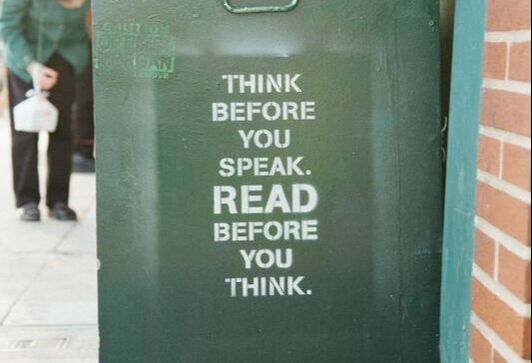 |
“The Temptation of St. Anthony,” Hieronymus Bosch (1450-1516). Fire threatens to rage over the landscape in a scene populated by strange and eerie creatures. Image courtesy of the Rijks Museum. |
Quotes & Sayings
Monday, March 18, 2024
2024 Interview on Sustainability between Pando, John Cobb, and Mary Elizabeth Moore
Recommended Read: Surviving God: Through the Eyes of Sexual Abuse Survivors
 |
| amazon link |
Surviving God: A New Vision of God through the Eyes of Sexual Abuse Survivors, by Grace Ji-Sun Kim (Author), Susan M. Shaw (Author)Who is God when we see God through the eyes of survivors? Many books have dealt with sexual abuse scandals in the church and the role of pastoral care for survivors. Others have provided liberatory readings of biblical texts to support survivors of sexual violence.Surviving God takes a new approach, centering the voices of sexual abuse survivors while rethinking key Christian beliefs. Starting from experiences of oppression, beliefs that contribute to oppression are challenged, and new, hopeful, and healing beliefs take their place.Groundbreaking theologians Grace Ji-Sun Kim and Susan M. Shaw, each a survivor herself, demonstrate how traditional ways of thinking about God are highly problematic, contribute to the problems of sexual abuse, and are not reflective of the God of love and justice at the heart of the gospel.These long-held theologies often perpetuate the problem of sexual abuse and fail to promote healing for survivors. Drawing from their own experiences and the experiences of other survivors, and centering the ways gender intersects with race, sexuality, class, and religion, Kim and Shaw lead us to deep healing and a transformed church that no longer contributes to the devastation of sexual abuse. In these inspiring pages, you will discover new ways of thinking about God that are surprising, challenging, and empowering.
 |
| article link |
- 51% of pastors say that Internet pornography is a possible temptation for them Approximately 20% of the monthly calls to Focus on the Family’s Pastoral Ministries Division are because of sexual misconduct and pornography. More than 30% of pastors are functionally addicted to Internet pornography. More than 15% of pastors engage in sexual behavior that they consider inappropriate. 10-14% of pastors have sexual contact with someone other than their spouse while employed as a minister.
- Clergy sexual misconduct with adults is a huge problem, prevalent across all denominations, all religions, all faith groups, all across the country. Rev. Pamela Cooper-White, former director of the Center for Women and Religion at the Graduate Theological Union in Berkeley, California, and currently Ben G. and Nancye Clapp Gautier Professor of Pastoral Theology, Care, and Counseling at Columbia Theological Seminary in Decatur, Georgia, estimates that of the vast majority of victims of sexual exploitation by clergy, more than 95 percent, are women.


- 40% of married pastors have had an extramarital affair (clergy abuse) while serving as a pastor.
- Abel Harlow Child Molestation Prevention Study: This study found that pedophilia molesters average 12 child victims and 71 acts of molestation. An earlier study by Dr. Abel found that out of 561 sexual offenders there were over 291,000 incidents totaling over 195,000 total victims. These are enough victims to fill 2 ½ Superdomes! This same study found that only 3% of these sexual offenders have a chance of getting caught.

- Baptist Accountability Database Site
- A crowd-sourced database for Baptist predators and their enablers.
- Crouching at Every Door - Sexual Abuse is a problem in both Catholic and Protestant churches -- Here are three environments in which Protestants are particularly vulnerable,by by Marvin Olasky, Sophia Lee, Emily Belz -- World Magazine.
Monday, March 4, 2024
Thomas Jay Oord - Barbie and Our Purpose
Tuesday, February 27, 2024
The Israeli-Palestinian Conflict
Given the history of brutality when Israel and Palestinian extremist groups have fought in the past, international groups quickly expressed concern for the safety of civilians in Israel and the Palestinian territories as well as those being held hostage by militants in Gaza. In the first month of fighting, approximately 1,300 Israelis and 10,000 Palestinians were killed. Increasing loss of life is of primary concern in the conflict.R.E. SlaterFebruary 27, 2024
On January 7, Israel announced it had successfully destroyed the fighting force of Hamas in northern Gaza and is shifting its focus to the central and southern parts of the territory. Almost two million Gazans, more than 85 percent of the population, have fled their homes since Israel began its military operation. Attacks on medical infrastructure and a lack of basic supplies have reduced the number of functioning hospitals to only nine, all of which are in the south, and the World Health Organization has warned of disease spread in addition to mounting civilian casualties. Meanwhile, the United States is conducting shuttle diplomacy amid simmering regional tensions. Israel has killed Hezbollah fighters in Lebanon, and increased its air strikes against alleged Iran-linked targets in Syria. Iran-backed groups have launched dozens of attacks on U.S. military positions in Iraq and Syria, and Yemen’s Houthi rebels have targeted missiles at Israel and commercial ships in the Red Sea.
The Israeli-Palestinian conflict dates back to the end of the nineteenth century. In 1947, the United Nations adopted Resolution 181, known as the Partition Plan, which sought to divide the British Mandate of Palestine into Arab and Jewish states. On May 14, 1948, the State of Israel was created, sparking the first Arab-Israeli War. The war ended in 1949 with Israel’s victory, but 750,000 Palestinians were displaced, and the territory was divided into 3 parts: the State of Israel, the West Bank (of the Jordan River), and the Gaza Strip.
Over the following years, tensions rose in the region, particularly between Israel and Egypt, Jordan, and Syria. Following the 1956 Suez Crisis and Israel’s invasion of the Sinai Peninsula, Egypt, Jordan, and Syria signed mutual defense pacts in anticipation of a possible mobilization of Israeli troops. In June 1967, following a series of maneuvers by Egyptian President Abdel Gamal Nasser, Israel preemptively attacked Egyptian and Syrian air forces, starting the Six-Day War. After the war, Israel gained territorial control over the Sinai Peninsula and Gaza Strip from Egypt; the West Bank and East Jerusalem from Jordan; and the Golan Heights from Syria.
Six years later, in what is referred to as the Yom Kippur War or the October War, Egypt and Syria launched a surprise two-front attack on Israel to regain their lost territory; the conflict did not result in significant gains for Egypt, Israel, or Syria, but Egyptian President Anwar al-Sadat declared the war a victory for Egypt as it allowed Egypt and Syria to negotiate over previously ceded territory. Finally, in 1979, following a series of cease-fires and peace negotiations, representatives from Egypt and Israel signed the Camp David Accords, a peace treaty that ended the thirty-year conflict between Egypt and Israel.
Even though the Camp David Accords improved relations between Israel and its neighbors, the question of Palestinian self-determination and self-governance remained unresolved. In 1987, hundreds of thousands of Palestinians living in the West Bank and Gaza Strip rose up against the Israeli government in what is known as the first intifada. The 1993 Oslo I Accords mediated the conflict, setting up a framework for the Palestinians to govern themselves in the West Bank and Gaza, and enabled mutual recognition between the newly established Palestinian Authority and Israel’s government. In 1995, the Oslo II Accords expanded on the first agreement, adding provisions that mandated the complete withdrawal of Israel from 6 cities and 450 towns in the West Bank.
In 2000, sparked in part by Palestinian grievances over Israel’s control over the West Bank, a stagnating peace process, and former Israeli Prime Minister Ariel Sharon’s visit to the al-Aqsa mosque—the third holiest site in Islam—in September 2000, Palestinians launched the second intifada, which would last until 2005. In response, the Israeli government approved the construction of a barrier wall around the West Bank in 2002, despite opposition from the International Court of Justice and the International Criminal Court.
Factionalism among the Palestinians flared up when Hamas won the Palestinian Authority’s parliamentary elections in 2006, deposing longtime majority party Fatah. This gave Hamas, a political and militant movement inspired by the Palestinian Muslim Brotherhood, control of the Gaza Strip. Gaza is a small piece of land on the Mediterranean Sea that borders Egypt to the south and has been under the rule of the semi-autonomous Palestinian Authority since 1993. The United States and European Union, among others, did not acknowledge Hamas’ electoral victory, as the group has been considered a terrorist organization by western governments since the late 1990s. Following Hamas’ seizure of control, violence broke out between Hamas and Fatah. Between 2006 and 2011, a series of failed peace talks and deadly confrontations culminated in an agreement to reconcile. Fatah entered into a unity government with Hamas in 2014.
In the summer of 2014, clashes in the Palestinian territories precipitated a military confrontation between the Israeli military and Hamas in which Hamas fired nearly three thousand rockets at Israel, and Israel retaliated with a major offensive in Gaza. The skirmish ended in late August 2014 with a cease-fire deal brokered by Egypt, but only after 73 Israelis and 2,251 Palestinians were killed. After a wave of violence between Israelis and Palestinians in 2015, Palestinian President Mahmoud Abbas of Fatah announced that Palestinians would no longer be bound by the territorial divisions created by the Oslo Accords.
In March of 2018, Israeli troops killed 183 Palestinians and wounded 6,000 others after some Palestinians stormed the perimeter fence between the Gaza Strip and Israel and threw rocks during an otherwise peaceful demonstration. Just months later, Hamas militants fired over one hundred rockets into Israel, and Israel responded with strikes on more than fifty targets in Gaza during a twenty-four-hour flare-up. The tense political atmosphere resulted in a return to disunity between Fatah and Hamas, with Mahmoud Abbas’ Fatah party controlling the Palestinian Authority from the West Bank and Hamas de facto ruling the Gaza Strip.
The Donald J. Trump administration reversed longstanding U.S. policy by canceling funding for the UN Relief and Works Agency, which provides aid to Palestinian refugees, and relocating the U.S. embassy from Tel Aviv to Jerusalem. The Trump administration also helped broker the Abraham Accords, under which Bahrain and the United Arab Emirates normalized relations with Israel, becoming only the third and fourth countries in the region—following Egypt in 1979 and Jordan in 1994—to do so. Similar deals followed with Morocco [PDF] and Sudan. Palestinian leader Mahmoud Abbas of Fatah rejected the accords, as did Hamas.
In early May 2021, after a court ruled in favor of the eviction of several Palestinian families from East Jerusalem properties, protests erupted, with Israeli police employing force against demonstrators. After several consecutive days of violence, Hamas, the militant group which governs Gaza, and other Palestinian militant groups launched hundreds of rockets into Israeli territory. Israel responded with artillery bombardments and airstrikes, killing more than twenty Palestinians and hitting both military non-military infrastructure, including residential buildings, media headquarters, and refugee and healthcare facilities. After eleven days, Israel and Hamas agreed to a cease-fire, with both sides claiming victory. The fighting killed more than 250 Palestinians and at least 13 Israelis, wounded nearly 2,000 others, and displaced 72,000 Palestinians.
The most far-right and religious government in Israel’s history, led by Benjamin ‘Bibi’ Netanyahu and his Likud party and comprising two ultra-Orthodox parties and three far-right parties, was inaugurated in late December 2022. The coalition government prioritized the expansion and development of Israeli settlements in the occupied West Bank, endorsed discrimination against LGBTQ+ people on religious grounds, and voted to limit judicial oversight of the government in May 2023 after a delay due to nationwide protests in March.
Following the outbreak of war between Israel and Hamas on October 7, 2023, President Joe Biden made a strong statement of support for Israel. On the same day that Israel declared war against Hamas, the United States announced that it would send renewed shipments of arms and move its Mediterranean Sea warships closer to Israel. While the UN Security Council called an emergency meeting to discuss the renewed violence, the members failed to come to a consensus statement. Given the history of brutality when Israel and Palestinian extremist groups have fought in the past, international groups quickly expressed concern for the safety of civilians in Israel and the Palestinian territories as well as those being held hostage by militants in Gaza. In the first month of fighting, approximately 1,300 Israelis and 10,000 Palestinians were killed. Increasing loss of life is of primary concern in the conflict.
While the United States said there was “no direct evidence” that Iranian intelligence and security forces directly helped Hamas plan its October 7 attack, Iran has a well-established patronage relationship with Hamas and other extremist groups across the Middle East. Israel has exchanged artillery fire with Iran-backed Hezbollah almost daily and struck Syrian military targets and airports, prompting concern that the war could expand north. To the south, Yemen’s Houthi rebels have launched multiple rounds of missiles at Israel as well. Meanwhile, the Islamic Resistance of Iraq, a coalition of Iranian-backed militias, has claimed responsibility for dozens of attacks on U.S. military targets in Iraq and Syria since the war began.
A 2023 effort by the United States to help broker a normalization accord between Israel and Saudi Arabia was thrown into chaos by the October conflict. Saudi Arabia has long advocated for the rights and safety of Palestinian Arab populations in Israel, the West Bank, and Gaza. Especially in Gaza, those populations are now in the path of IDF operations, jeopardizing the progress the Israelis and Saudis made toward a common understanding. However, the United States says the Saudis have indicated they are still interested in the deal.
In early October 2023, war broke out between Israel and Hamas, the militant Islamist group that has controlled Gaza since 2006, in the most significant escalation of the Israeli-Palestinian conflict in several decades. Hamas fighters fired rockets into Israel and stormed southern Israeli cities and towns across the border of the Gaza Strip, killing more than 1,300 Israelis, injuring 3,300, and taking hundreds of hostages. The attack took Israel by surprise, though the state quickly mounted a deadly retaliatory operation. One day after the October 7 attack, the Israeli cabinet formally declared war against Hamas, followed by a directive from the defense minister to the Israel Defense Forces (IDF) to carry out a “complete siege” of Gaza.
Since then, the two sides have traded daily rocket fire, and Israel ordered more than one million Palestinian civilians in northern Gaza to evacuate ahead of a ground invasion that began on October 28. Israeli forces have encircled Gaza City, cutting it off from southern Gaza and squeezing Hamas. Hundreds of thousands of civilians remain in the city. Gazan health officials say the war has killed 10,000 Palestinians, including more than 4,000 children. The territory is also desperately low on water, fuel, and supplies as Israel has rejected humanitarian pauses and limited the amount of aid that can enter.
The displacement of millions more Palestinians presents a dilemma for Egypt and Jordan, which have absorbed hundreds of thousands of Palestinians in the past but have resisted accepting anyone during the current war. They fear that Gazans, many of whom were already displaced from elsewhere in Israel, will not be allowed to return once they leave. Egypt also fears that Hamas fighters could enter Egypt and trigger a new war in the Sinai by launching attacks on Israel or destabilizing the authoritarian regime of Abdel Fattah el-Sisi by supporting the Muslim Brotherhood. So far, negotiations have resulted in only 1,100 people exiting Gaza through the Rafah border crossing to Egypt. The other 1.5 million displaced Gazans—70 percent of the territory’s population—have nowhere to go and face increasingly dire living conditions and security risks.


